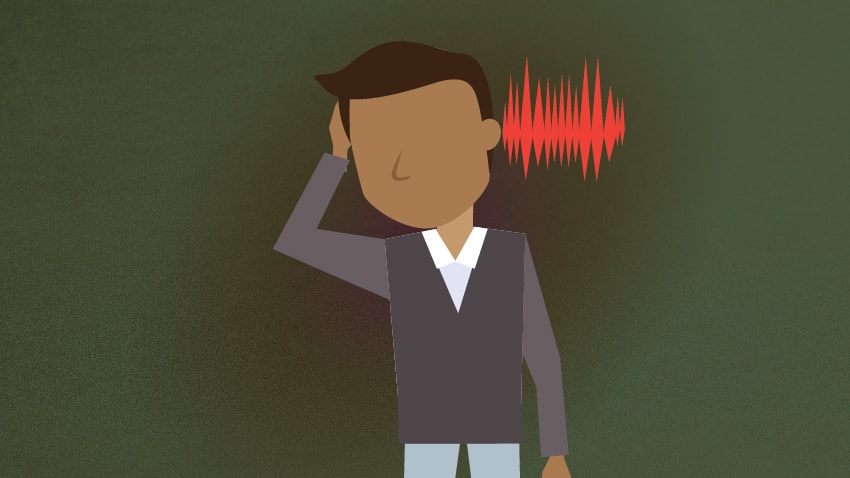Tinnitus is the sensation of hearing certain noises without there being an external cause, which can understandably be quite troubling for those who’re impacted by this hearing problem. However, while hearing these sounds can often be off-putting, understanding where they come from, why they occur, and what can be done can make dealing with tinnitus much easier moving forward. If you’ve just discovered that you have tinnitus or believe that you may, let’s take a closer look at the symptoms, causes, and potential treatment of this bothersome issue.

Tinnitus: Your Go-To Guide
What are the symptoms of tinnitus?
While the severity of your tinnitus will ultimately determine whether or not you experience further complications, there are general symptoms that all tinnitus sufferers experience. These common tinnitus symptoms are in regards to the auditory experiences that individuals will have with this sensation, which can include sounds like ringing, clicking, hissing, humming, buzzing, or roaring. Additionally, tinnitus can be separated into two types: subjective tinnitus (tinnitus in which you hear external sounds but there are no discernible physical causes) and objective tinnitus, which is a rare form of tinnitus where there’s a physical cause behind the very real sounds that you’re hearing.
Individuals with minor tinnitus symptoms will often be able to cope rather well, but those with severe symptoms may deal with further symptoms as a result of their tinnitus such as fatigue, mental health problems like anxiety or depression, stress, trouble with memory and concentration, and difficulty sleeping.
What causes tinnitus?

Tinnitus is a rather common condition, and it’s made apparent why when you discover all the different causes that can lie at the root of this auditory problem. Some of the most common causes of tinnitus include:
- Age-related hearing loss, which results in experiencing more high-frequency sounds as you age and your hearing becomes progressively less effective.
- A buildup of earwax that’s causing hearing problems and needs to be removed.
- Various types of medications like antidepressants, NSAIDs, diuretics, antibiotics, cancer medications, and quinine-based medicines.
- High blood pressure and hardening of the arteries.
- Damage to the inner ear bones or other physical problems like neck and head injuries.
- Short-term and long-term exposure to loud noises.
- Ear or sinus infections.
No matter how tinnitus is impacting you, it’s important that you see a medical professional who can further evaluate any of these potential causes and help you take the necessary course of action to alleviate these underlying conditions.
Can tinnitus be treated?
Arguably the best news about tinnitus is that there’s the potential to eliminate the sounds (or at least reduce the impact that tinnitus is having on you). The first step in treating tinnitus is to reach out for help and undergo a comprehensive hearing exam to determine where the problems lie and more focused testing in regards to your tinnitus specifically. Should your doctor discover that you have an underlying condition that’s contributing to your tinnitus symptoms, treating these issues may actually eliminate the background sounds you’re experiencing in the process. Some people with tinnitus also have hearing loss and most hearing aids that are rechargeable now come with tinnitus features to help customers better manage their condition.
However, if tinnitus isn’t something you can expect to go away, don’t fret. There are plenty of ways that people can counteract these symptoms and lead a better quality of life. Current treatment options for those with severe and continuous tinnitus symptoms include cognitive behavior therapy, tinnitus sound therapy, masking devices, hearing aids, biofeedback, and stress management.
The symptoms of tinnitus can be stressful, but learning more about your condition can go a long way in helping you alleviate and better cope with these symptoms. Whether you know or believe you suffer from tinnitus, the guide above will better help you understand this common sensation and what can be done to help you seek help and find relief.


